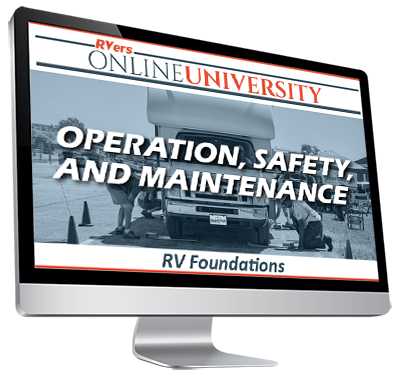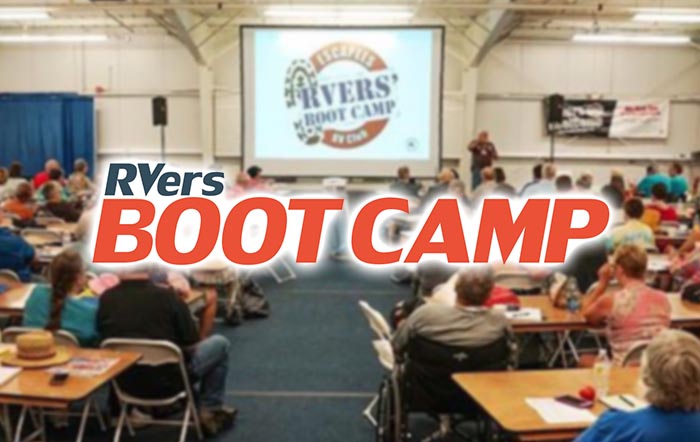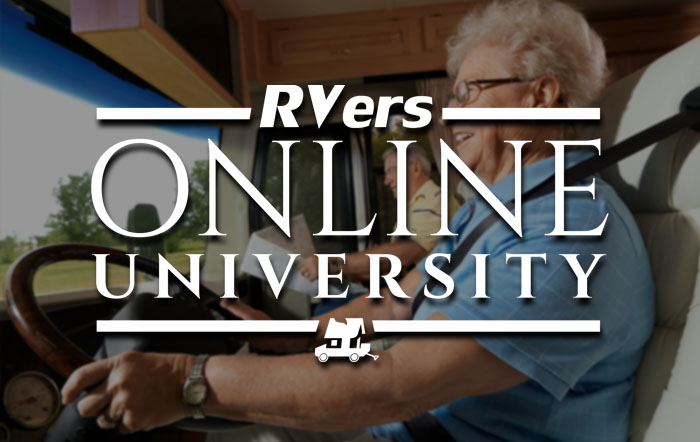One of the most common things RVers need to figure out when planning their RV lifestyle is how to stay connected while traveling full-time. And many people will often ask – “What is the BEST solution for getting internet while on the road?”
But the answer is not all that simple. What’s “best” for one person may not work for another person. There are many different variables that go into determining what solutions make the most sense. This article will cover things you need to consider and think about when determining what “best” means for you.
What Are Your RV Internet Needs?

Before you start purchasing a bunch of equipment that you saw on a YouTube video and signing up for expensive data plans – the first thing you should do is make sure you have a good understanding of what your specific internet needs are.
There really is no single setup for keeping online that will work for everyone. Each RVer is going to have their own travel style, reliability concerns, things they need to do online, technical comfort, data needs, and budget.
So the “best” setup is going to vary greatly from household to household.
To help determine what your unique needs are, ask yourself the following questions:
- How important is internet access to you? Do you need to be connected all day, all the time? Or do you only need reliable access a few times a week? The more you need to be connected, the more options you will need.
- How many people are you traveling with? The needs of a single traveler will be much different that the needs of a family, especially if members of the family are working remotely and homeschooling.
- What do you need to do online? Are you planning to host or attend video conferences, or will your needs be simpler? A solution for high data needs like streaming and conferencing will be more robust than a setup for someone who only wants to check email every now and then.
- What is your style of travel? Do you tend to stay places for weeks or months at a time, or do you move around more frequently? Do you frequently travel to remote locations? Or do you stick to urban areas or along interstates? Do you travel across borders, or stick to the USA? Do you boondock, stay in state parks or use commercial campgrounds? Each variable can present different challenges and solutions.
- What is your comfort level with technology? Do you want a “plug-and-play” setup, or are you comfortable with buying and setting up more advanced gear? Some cellular equipment is very easy to set up and use, but if you want to get into more advanced gear like routers, a good technical background will be helpful.
- What is your budget? Do you have a set budget, or are you willing to spend whatever it takes to get the best setup? Not only will you need to factor in the cost of your equipment and gear, but you’ll also need to consider what you’ll have to pay for your data plans.
- When will you need your mobile setup? Are you leaving in the next few weeks or months,, or are you planning ahead for a departure that’s further in the future? If you’re not planning to need your remote access for a year or more, then waiting to invest in your setup might make sense. Technology is always changing and improving, so you don’t want to buy something now that may be outdated by the time you actually need it.
Knowing the answers to these questions before you start making purchases will help you in determining the type of setup that is going to work best for you
For more on assessing your unique needs:
Finding Your Best Mobile Internet Solution Begins with Understanding Your Unique Needs
The Best RV Internet Options To Stay Connected
Once you start researching options for staying connected while traveling, you’ll quickly learn that there are a lot of different options out there. Here’s an overview of some of the more common options that are available.
Personal Hotspot from a Smartphone
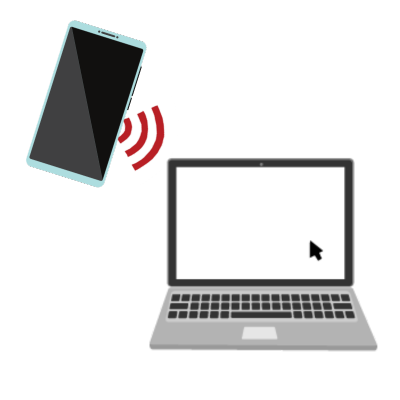
The most basic and simple option is to utilize the personal hotspot capability of your cellular phone. This means you can use the data on your phone plan to broadcast a Wi-Fi signal to your other devices, and then those devices can use the data on your phone plan.
Almost all smartphones will have this ability, but the data plans themselves usually have limits on how much high speed data can be used as hotspot data, so make sure you understand the terms of your plan.
Pros and Cons
Pros: Simple and won’t require the purchase of additional equipment.
Cons: Hotspot data is usually limited on a phone plan.
Mobile Hotspot Device & Routers
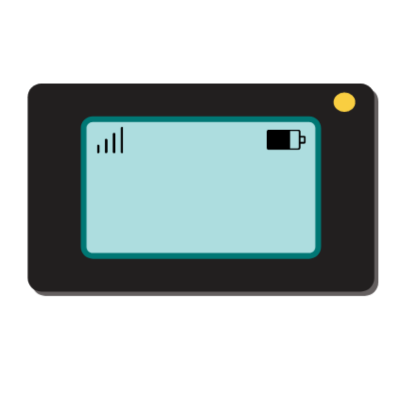
Another option is to use a dedicated cellular hotspot device or a more advanced cellular embedded router. These are stand alone devices that will need their own data plans. Multiple devices, such as laptops and tablets, can connect to and use the data from a hotspot or router.
Pros and Cons
Pros: Dedicated data that can be shared with other devices.
Cons: Requires the purchase of a device and data plan.
For more on the differences between smartphones and hotspots & routers:
Ways to Use Cellular Data To Get Online: Mobile Hotspot, Smartphone, Tablet or Router?
RV Satellite Internet / Starlink

Legacy satellite internet options of the not-so-long-ago past were much slower, bulkier, and more expensive than other options for mobile internet, but companies like Starlink are changing the game.
Starlink offers low earth orbit satellite constellations that can deliver high speed connectivity almost anywhere. Starlink has become a very viable and popular option for nomadic use, but it still comes with some limitations.
While the coverage area is virtually everywhere, some locations with obstructions like trees may make it difficult to connect and use their service. Congestion and power usage are also considerations.
Pros and Cons
Pros: You can get fast internet just about anywhere.
Cons: It’s expensive, and Starlink is constantly changing things when it comes to pricing and terms of service.
For more on Starlink:
Starlink Satellite Internet for Mobile RV Use
Home Internet Services
In the past few years, the major cellular carriers have started offering Home Internet services, providing unlimited or large amounts of data for a reasonable price. Designed to compete with traditional wired internet service providers, Home Internet plans are typically intended to be used in fixed locations.
But some of the carriers do not seem to be enforcing the location restrictions, and the Home Internet services have actually become quite popular with the nomad community.
These plans can sometimes be a little difficult to get, as they are only offered in locations where there is excess capacity. If you don’t have an address you can use in one of those areas, the service may not be available to you.
Even though the carriers are not enforcing any location restrictions, the terms of the plans do explicitly state that they are not for mobile use. There’s no guarantee that any of these providers will not start enforcing location restrictions in the future.
All of these plans require the use of a gateway device that’s provided by the carrier, and the SIM can not be moved to a different device.
Public Wi-Fi or Campground Wi-Fi
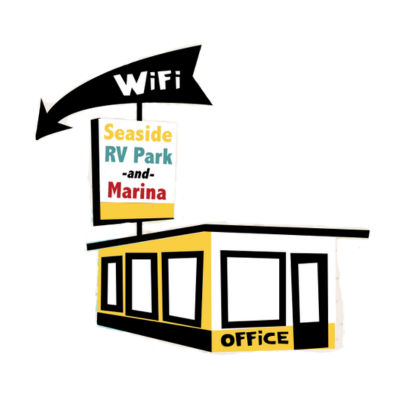
Another cheap and easy way to get online is to utilize the Wi-Fi that is often provided for free at campgrounds, marinas, restaurants, libraries, and other public spaces.
But the catch with this solution is that shared public networks like this be quite slow or congested. They typically just don’t have the bandwidth for multiple users to all have high speed experiences all at once. It might work perfectly fine for checking your email and surfing social media, but if you want to stream movies or do video conferencing, you will likely find this solution to be very lacking.
Pros and Cons
Pros: Often free or at least very cheap.
Cons: Only available in certain locations, and usually very slow or limited.
For more on using Wi-Fi:
Using Wi-Fi as a Mobile Internet Source
Tips for Getting Great Internet in Your RV

Even after you’ve selected your gear and data plans, there are other day-to-day things you can do to help you ensure that you’ve got reliable access to the internet wherever you go.
Plan Your Travels Around Signal or Service
When you’re planning your travels or next stops, don’t forget to research what the available internet options will be at your next stop. If you’re going to an RV park, will they provide Wi-Fi?
If not, or if you’re not staying in an RV park, you can investigate what the cellular signal options and strengths will be before you arrive.
You can use the carriers’ own coverage maps, an app like Coverage?, or a crowd-sourced tool like Open Signal or Cellmapper. You can also sometimes get a good idea of what the situation will be by reading online reviews of the locations that you’ll be visiting.
For more on planning your travels:
Finding Cellular Signal and Travel Planning for RV and Boat Mobile Internet
Have More Than One Option
Another important factor for making sure you’re always connected is to always have a backup plan. Having more than one option for internet access will give you an alternative if your first, or even second, plan doesn’t work out.
We always recommend having data plans with more than one carrier, as no one carrier has coverage in every single location across the country. By having redundant solutions ready to go, you can help ensure you can get connected when you need to be.
For more on Redundancy:
The Importance of Mobile Internet Redundancy
Tools To Get Better RV Internet
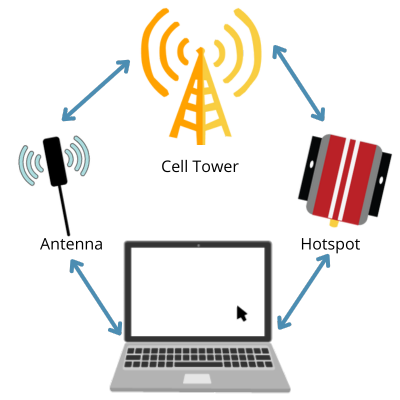
In addition to the basic gear that you need to stay connected like a phone or hotspot, there is also more advanced gear you can purchase to help with improving your connectivity.
For improving a cellular signal, there are two options: a cellular antenna or a cellular booster. In most situations, an antenna is going to be most effective, and is a cheaper option than a booster. But in order to use an antenna, you must have a device with antenna ports. Many cellular hotspots and routers have this option. Smartphones however do not have antenna ports, so the only option is a booster.
A cellular booster can work to strengthen a cellular signal for any device – but it is more expensive. In the right situation, a booster can greatly impact upload speed, but won’t typically do much for download speeds. So whether or not it will be beneficial to you depends on what type of activity you’ll be doing. If you’re planning to broadcast a video conference, it might be very helpful. But if you’re looking to download data, it won’t be as effective as often.
For more on Cellular Data Performance:
Optimizing & Understanding Cellular Data Performance – Getting Better Speeds & Reliability
If you’re trying to improve a Wi-Fi signal, such as one provided by an RV park, marina, or other public space, then Wi-Fi extending gear is what you would want to use to improve the signal. But keep in mind that all this equipment will do is make the signal itself stronger. It’s not able to improve the speed provided at the source. In other words, if the Wi-Fi signal is slow to begin with, no amount of gear on your end is going to be able to speed it up.
Wrapping Up
There are many different scenarios and factors in determining what the “best” internet setup is, and much of that is determined by what your unique needs are. With a good understanding of what the different available tools, equipment, and plans are, you can tailor a solution that will work “best” for you.
For more information on finding Best Internet Options, here are some other articles from the Mobile Internet Resource Center that may help you:
- Finding Your Best Mobile Internet Solution Begins with Understanding Your Unique Needs
- Using Cellular Data for Mobile Internet
- Using Wi-Fi as a Mobile Internet Source – Selecting Long Range Wi-Fi Extending Gear
- Starlink Satellite Internet for Mobile RV and Boat Use
Did you like this? Pin it to Pinterest!
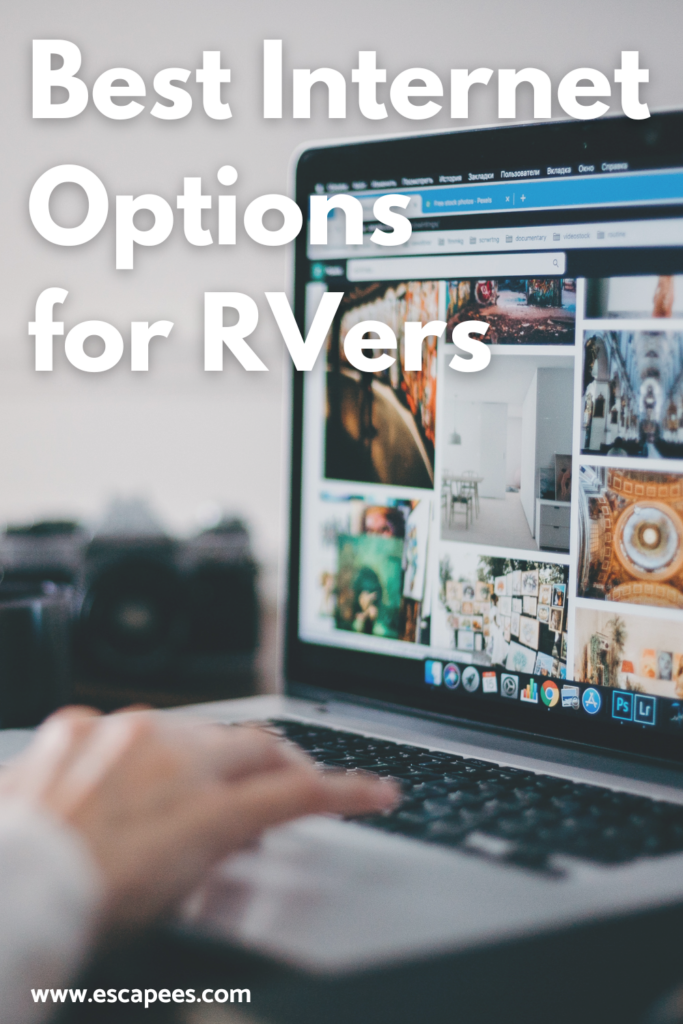

Author:
Jen Nealy
Jen and her husband Deas were full-time RVers for 5 years, and now they part-time travel in their van from their home base in Asheville, NC with their dog Finn. Jen works part-time for the Mobile Internet Resource Center.


